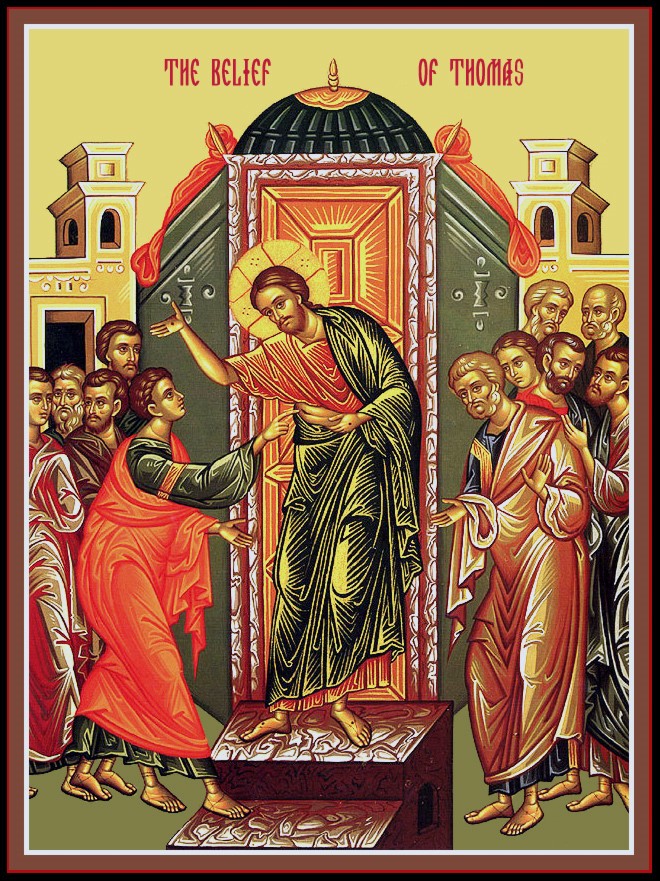Thomas’ Sunday – Metropolitan of Strumica, Nahum
~+~
The Holy Apostle Thomas is the disciple of Christ who, before going to Lazarus – the brother of Martha and Mary, when he saw Christ’s determination, despite all the danger, to go and wake Lazarus from death, said: “Let us also go, that we may die with him” (John 11:16).
Thus, the Apostle Thomas, through his request to touch the wounds of Christ, does not express any unbelief, but a deep longing from personal experience to know the Risen Christ, and not simply to hear about Him from others – regardless of whether they were Apostles or the Bishops, presbyters, monks of today, or even to read from books – be it the Holy Gospel itself or not. As the Apostle Paul says: “Yet indeed I also count all things loss for the excellence of the knowledge of Christ Jesus my Lord, for whom I have suffered the loss of all things, and count them as rubbish, that I may gain Christ” (Phil. 3:8).
Confirmation of that which I am saying is the fact that he is the only Apostle who touched the wounds of Christ, and the Holy Church confirms the longing for the knowledge of God of this supreme Apostle by designating the first Sunday after the Resurrection as “Thomas’ Sunday” and thus calls all Her children to the same longing.
And today we can also touch the wounds of Christ every time we make an effort to heal them – spiritually and physically, in one of the least of His brothers – even more than the Apostle. The double greeting “peace be with you” with which the God-Man Christ greets the Apostles, the first time is to deliver them from fear and anxiety, and the second time to deliver them from euphoria.
The behaviour of those at the first stage of spiritual development – the purification of the heart from passions – is hesitant and they need peace, in contrast to the stable behaviour of the enlightened or deified ones – such as the myrrh-bearing women, who hear the greeting: “rejoice”!
Metropolitan of Strumica, Nahum
27 / 04 / 2025
Divine Liturgy in the church of “St. Elijah” in Old Town of Dojran.

